
Category

Food Grade Continuous Rotary Drying Tray/ Rotary Disc Dryer/ Plate Dryer Drying Equipment for Starch
Overview Product Description PG series continuous pan dryer is a high-efficiency conduction continuous drying equipment.
Overview
1. Drying trayDesign pressure: generally 0.4MPa, the maximum can reach 1.6MPa.Working pressure: Generallyless than 0.4Mpa, the maximum can reach 1.6Mpa.Heating medium: steam, hot water, oil. When the temperatureof the drying plate is 100°C, hot water can beused. At 100°C-150°C, it is saturated water vapor or steam of <0.4Mpa;at 150°C-320°C, it is oil.2. Material transfer systemSpindle speed: 1-10 rpm, electromagnetic or frequency spike speed adjustment.RakeArms: Each layer has 2 to 8 arms fixed to the spindle.Blade of the rake: Engaged on the rake arm, floats with thesurface of the board to maintain contact. Thereare several types.Roller: To make the product prone to caking orneed to grind, heat transfer and drying process can beenhanced by placing the roller in the proper position.3. Shell:There are three types: atmospheric, sealed and vacuumAtmospheric pressure: cylindrical shell or octagonalprism, with integral and split structures. The mains for the inlet and outlet of the heating medium can be inside thehousing or outside the housing.Airtight: The cylindrical sheil can withstand the internal pressure of 5Kpa, and themain pipes for the inletand outlet of the heating medium can be inside or outside the shell.Vacuum: The cylindricalshell can withstand the external pressure of-0.098Mpa. The main conduits for inletand outlet are inside the housing.Air heater:If moist air enters, it is usually used with an induced draft fan to improve drying efficiency.
Basic Info.
| Type | Continuous Vacuum |
| Origin | China |
| HS Code | 842119200 |
| Production Capacity | 100 |
Product Description
Product DescriptionPG series continuous pan dryer is a high-efficiency conduction continuous drying equipment. Its unique structure and working principle determinethat it has the advantages of high thermal efficiency, low energy consumption, small footprint, simple configuration, easy operation and control, andgood working environment.
It can be widely used in the drying process of the chemical industry. Medicines, pesticides, food, feed, agricultural and sideline products processing,etc. have been well received by various industries in practical applications. Now there are three major categories, namely atmospheric, closed andvacuum. 1200, 2500, 2200 and 3000 sizes, etc; Tube, spindle and support stainless steel material), and stainless steel lining of cylinder block andtop cover).The drying area is from 4 to 180 square meters, and now we have hundreds of models of series products and various auxiliary equipment to meetcustomers' requirements for drying materials.1. Drying trayDesign pressure: generally 0.4MPa, the maximum can reach 1.6MPa.Working pressure: Generallyless than 0.4Mpa, the maximum can reach 1.6Mpa.Heating medium: steam, hot water, oil. When the temperatureof the drying plate is 100°C, hot water can beused. At 100°C-150°C, it is saturated water vapor or steam of <0.4Mpa;at 150°C-320°C, it is oil.2. Material transfer systemSpindle speed: 1-10 rpm, electromagnetic or frequency spike speed adjustment.RakeArms: Each layer has 2 to 8 arms fixed to the spindle.Blade of the rake: Engaged on the rake arm, floats with thesurface of the board to maintain contact. Thereare several types.Roller: To make the product prone to caking orneed to grind, heat transfer and drying process can beenhanced by placing the roller in the proper position.3. Shell:There are three types: atmospheric, sealed and vacuumAtmospheric pressure: cylindrical shell or octagonalprism, with integral and split structures. The mains for the inlet and outlet of the heating medium can be inside thehousing or outside the housing.Airtight: The cylindrical sheil can withstand the internal pressure of 5Kpa, and themain pipes for the inletand outlet of the heating medium can be inside or outside the shell.Vacuum: The cylindricalshell can withstand the external pressure of-0.098Mpa. The main conduits for inletand outlet are inside the housing.Air heater:If moist air enters, it is usually used with an induced draft fan to improve drying efficiency.
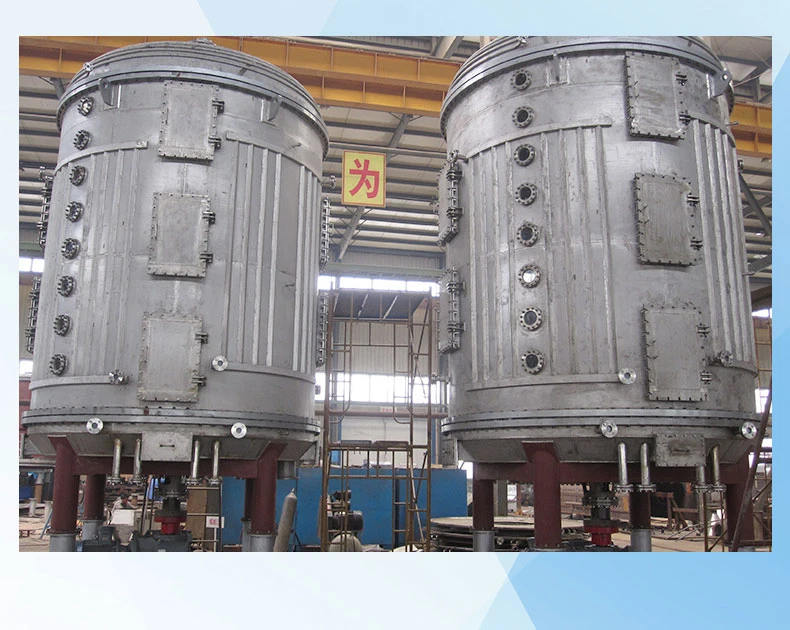
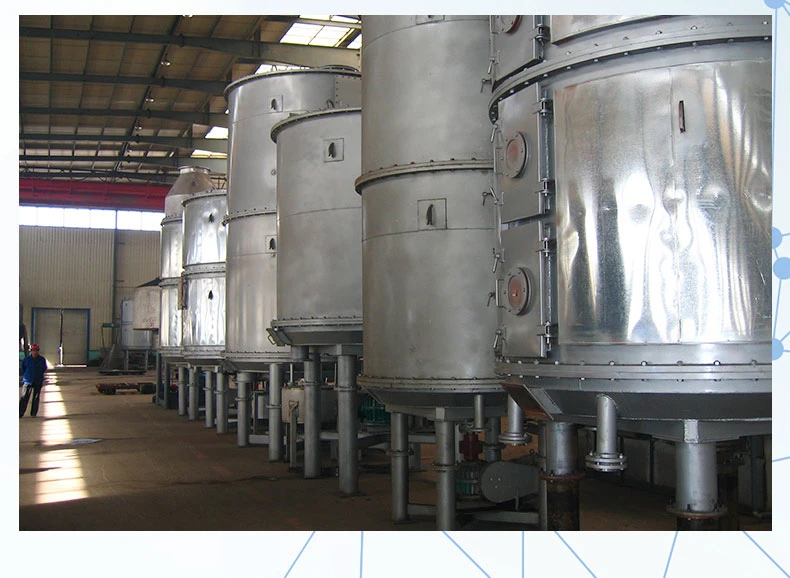
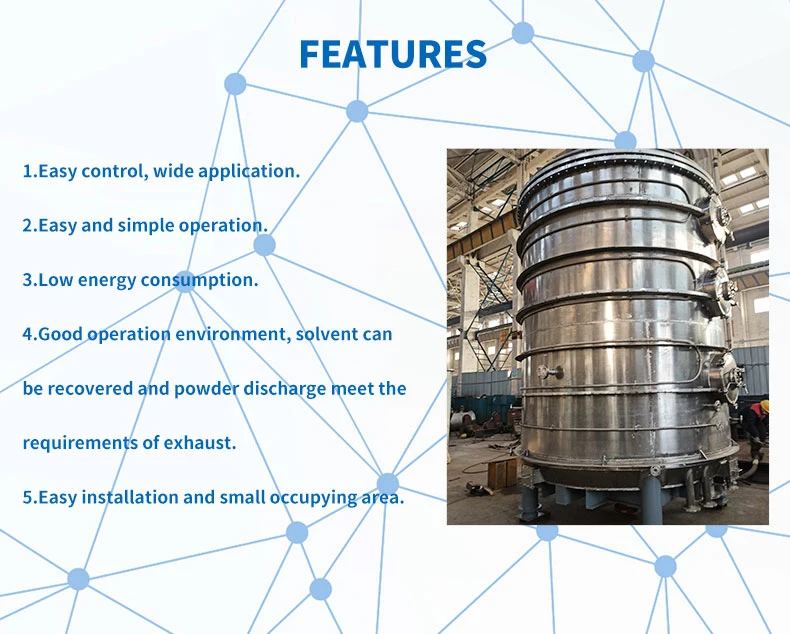
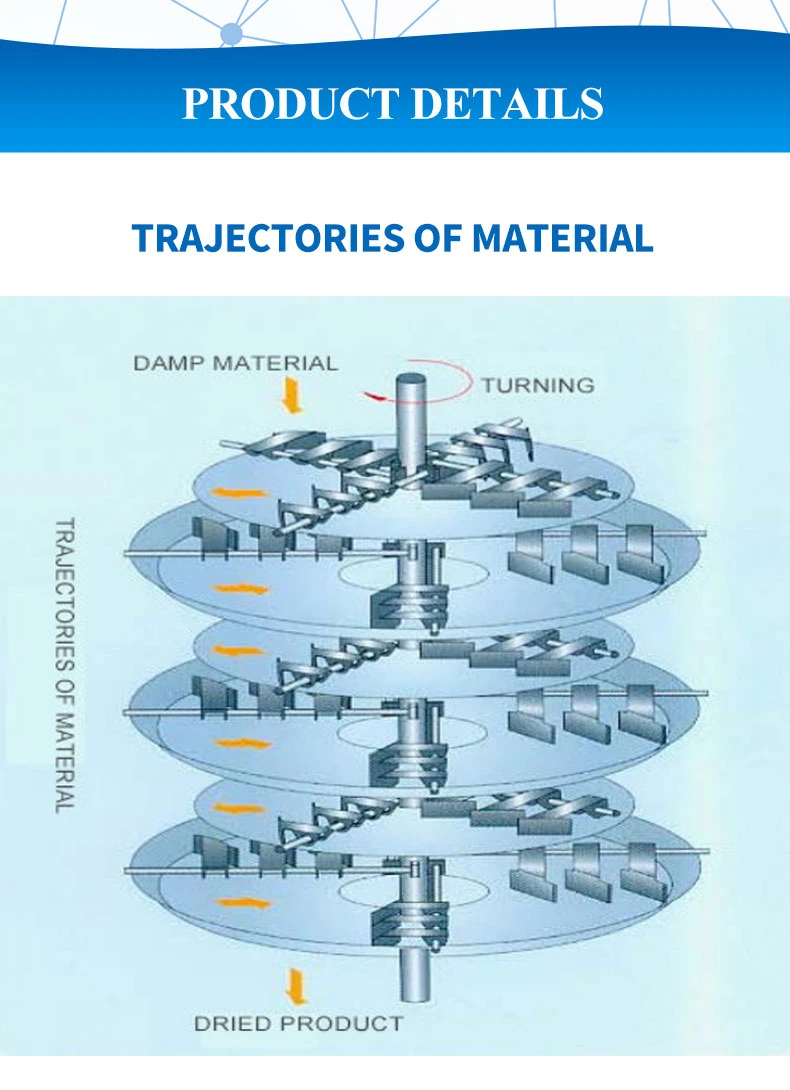
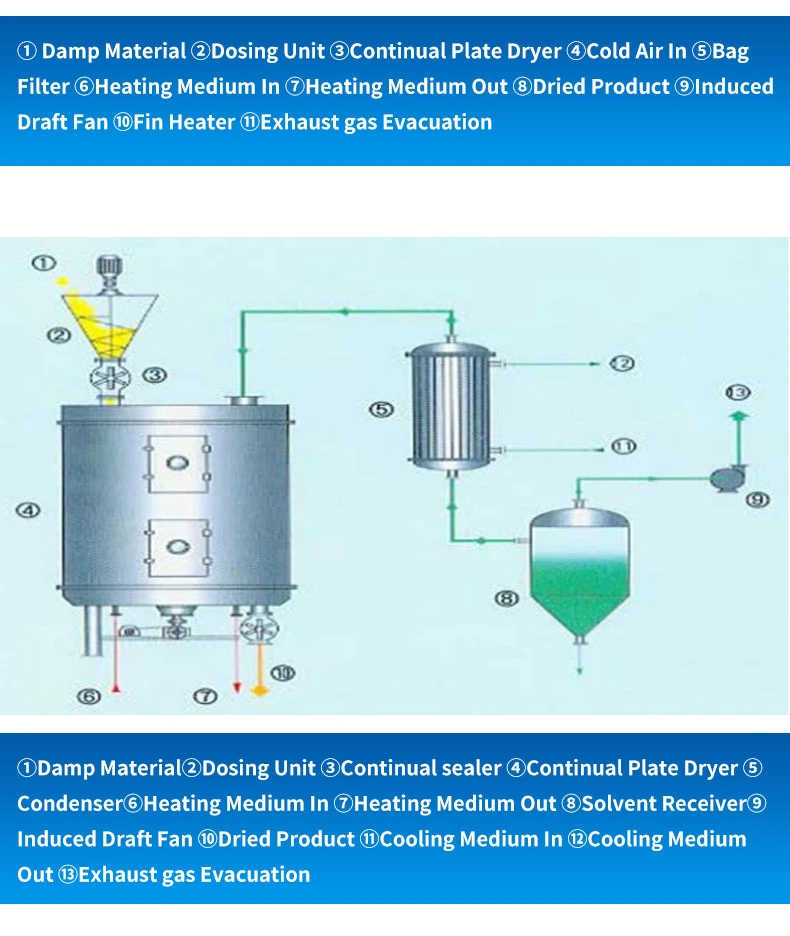
Pre-sales service
1) Professional advice and rich experience help to choose machine.
2) Inquiry and consulting support
3) View our factory
After-sales service
1) Training how to install and use the machine
2) Engineers available to service machinery overseas.
3)one year warranty,whole life service. Within1 year, any problem part can send to us, we can give provide free new part (onlydamaged by machine itself).








